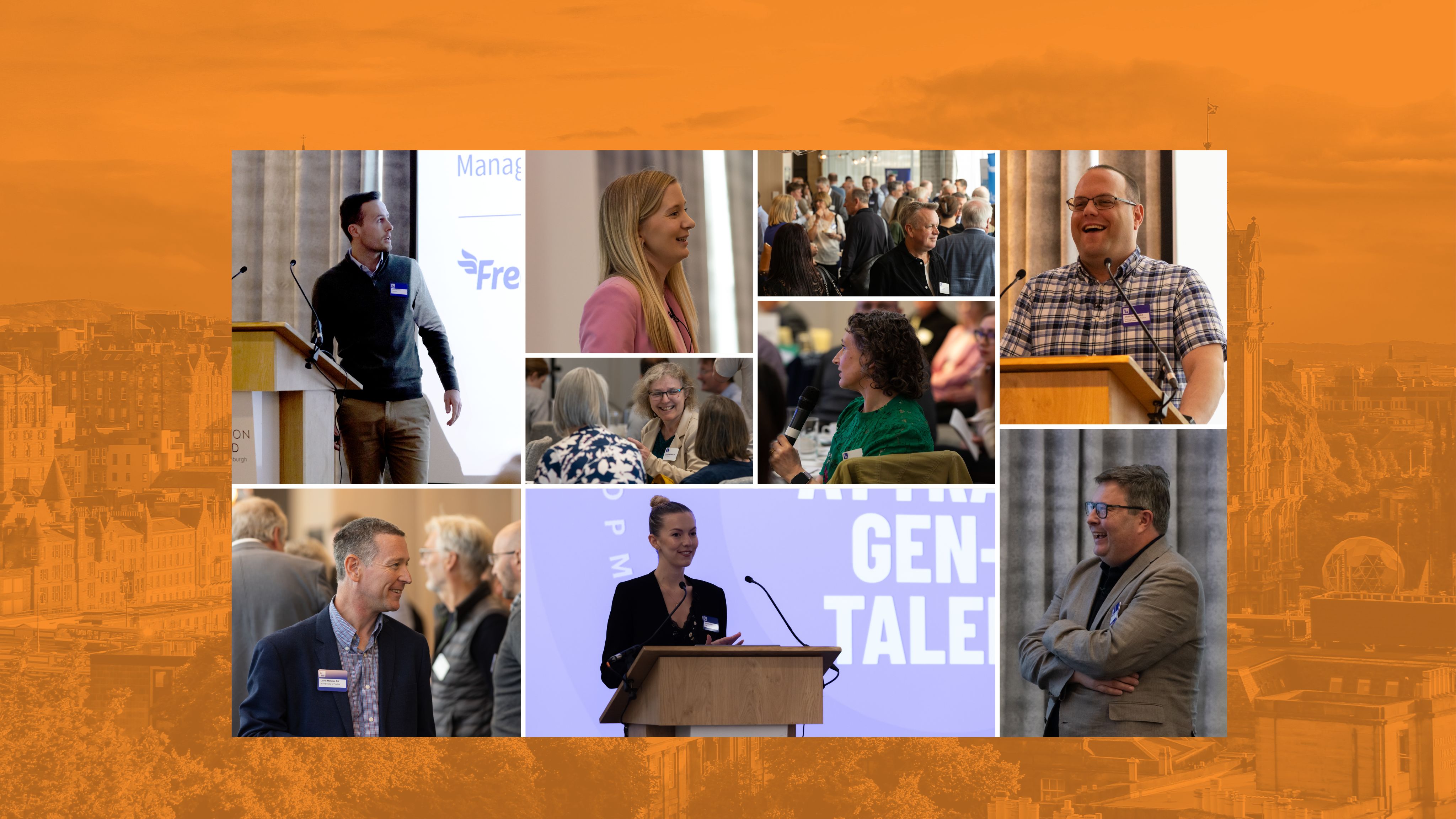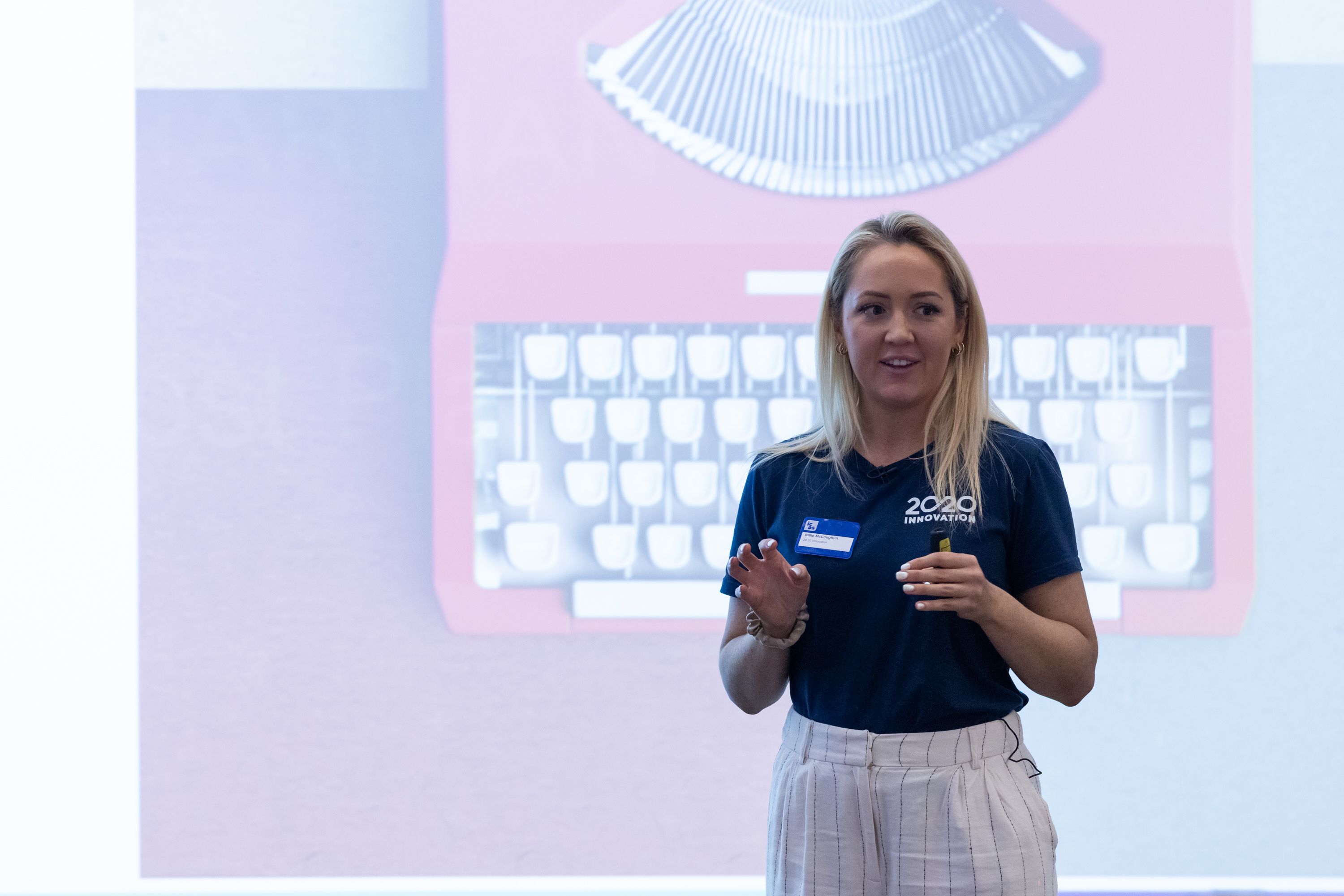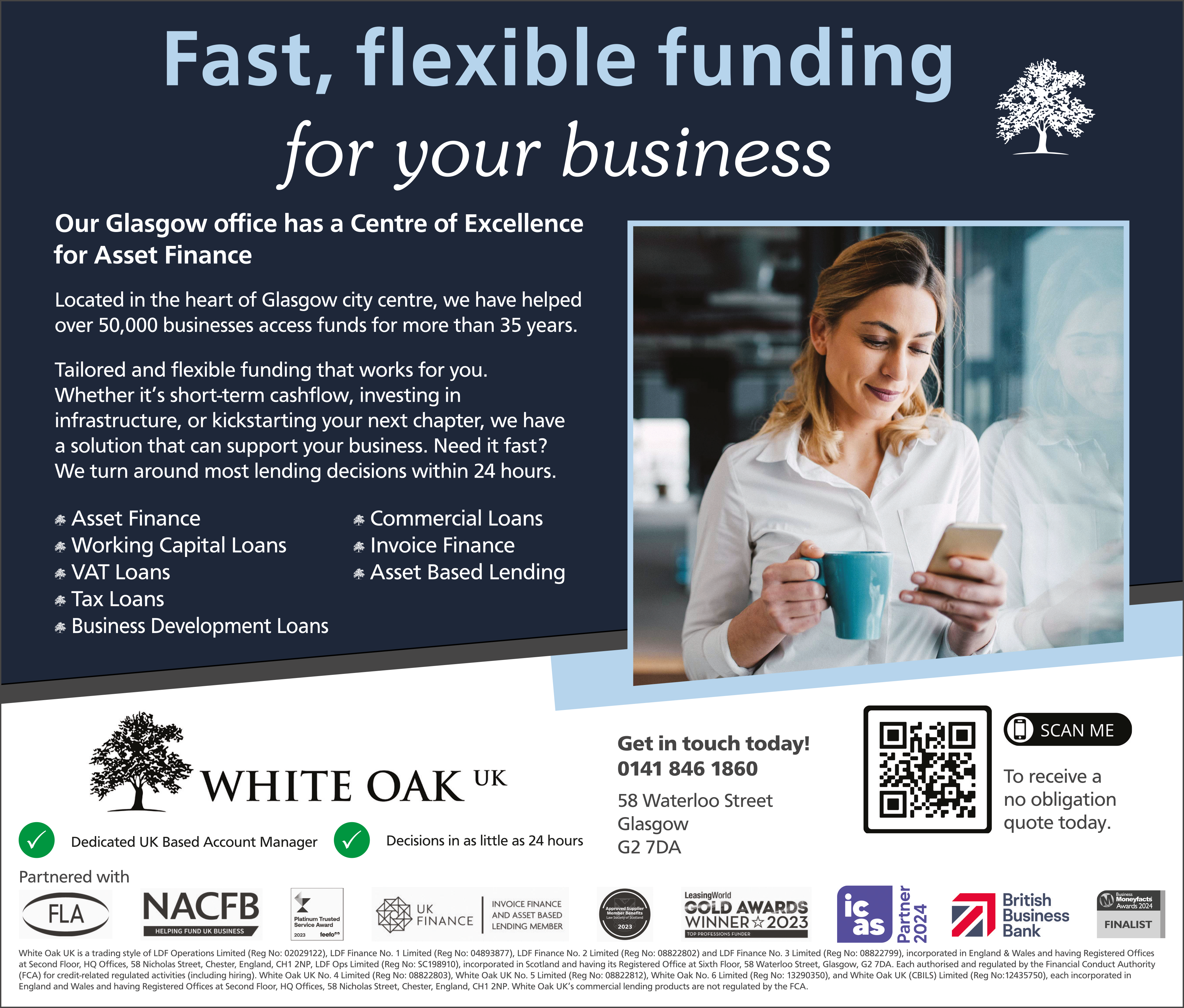
What does your future look like?
A stellar line-up at this year’s ICAS Practice Conference, in association with FreeAgent, delivered inspirational insights into AI and tech stacks, sustainability reporting as a client service, talent retention and more. Fraser Allen reports
With a mischievous smile never far from her lips, Rachel Harris had a gentle warning for delegates attending the ICAS Practice Conference 2024. “You will not be replaced by a robot,” she said. “Not unless you act like one.”
It was a fitting clarion call at an event whose theme was “Navigating the Future”. The energetic Harris, taking to the stage at Edinburgh’s Sheraton Grand Hotel in one of her trademark pink suits, was sharing her story of going from working alone in her kitchen to building a practice with a £1.5m turnover in just four years.
But striveX, the business she created with her husband James Harris, is not only remarkable for its financial growth but for the role she has carved out as a social influencer through her @accountant_she posts. The self-styled “disruptor” has 57,000 followers on Instagram alone. “I would have been a lot more excited about accountancy when I began my career if @accountant_she had existed then,” she told the conference.
Raised in Cumbria and based in Buckinghamshire, Harris (who was profiled in the May 2024 issue) trained as an accountant and worked as Finance Manager for a care home company before deciding to strike out on her own. Rather than thinking of herself as an accountant, she describes her role as “helping people who are terrified when that brown envelope arrives through the letter box”. Her practice is very much pitched at people she can relate to – business owners, social media influencers and celebrities. (She herself has made many TV appearances.)
Much of her keynote address was taken up with a coaching session designed to help CAs identify and pursue their personal goals. As she pointed out, people don’t get on a bus without knowing where they want to go, so why would you not have that same sense of direction with your business? Quoting Bill Gates, she added: “Most people overestimate what they can do in one year, and underestimate what they can do in 10.”
What makes Gen Z tick?
One jaw-dropping moment in Harris’s presentation came when she revealed she has a waiting list of 227 prospective employees hoping to join striveX. Many CA firms struggling to recruit and retain younger employees would be staggered by that stat – but fortunately, Saskia Cochrane was on hand to help.
In a presentation called “How to Attract Gen Z Talent”, Cochrane, Head of Attraction at the employer branding and early-talent agency Wiser, shared useful insights into what makes many younger recruits tick. Gen Z comprises anyone born between 1997 and 2012 and Cochrane stressed she would, of necessity, be talking in generalisations.
Typical Gen Z traits include a preference for more dialogue and less confrontation; less inclination to conform; a strong sense of inclusivity; and a pragmatic outlook in which transparency is highly valued. And while the cost-of-living crisis has seen salary return as the main driver of their early career ambitions, Gen Z remains highly motivated by the sense of purpose that a business appears to present.
Cochrane urged practices to build a “Bard” model for attracting and developing talent across four pillars: brand, attraction, recruitment and development. “Identify what makes your company a great place to work at,” she said. “Instead of stock images on your website, showcase your most passionate, inclusive colleagues. And make recruitment a welcoming, exciting process.”
Five Practice Conference takeaways for a brighter future
1. Set clear goals for the future of your practice. After all, if you don’t know where you’re going, how can you ever get there?
2. Introduce AI to your business with simple steps that bring clear benefits, such as using transcription software to record meetings or using ChatGPT for research.
3. Enhance your talent recruitment and retention levels by understanding what motivates many Gen Z employees.
4. Embrace a strategic approach to investing in technology by developing your own layered tech stack.
5. Explore apps that can measure your carbon footprint as a business, and look at embracing sustainability reporting as a service to your clients.

One contributor from the floor noted: “We don’t have a problem recruiting Gen Z but we do have a problem retaining them.” Another said: “It can be a challenge bringing Gen Z recruits together with older employees who sometimes have fixed ideas.”
Cochrane recommended creating a transparent career path for recruits to help them see their future with the firm, support them with mentoring (which is also a great way to bring older and younger team members together) and make the exit process for anyone leaving the business as comfortable and rewarding as possible. This may influence how they talk about you after leaving. And if their next career step doesn’t work out, it may well encourage them to return – and stay much longer.
MTD and building a tech stack
Navigating the Future, introduced by ICAS Director of Practice, David Menzies CA, and skilfully hosted by Richard Sergeant, Managing Director at Principle Point, also featured Chris Campbell CA, part of the ICAS tax team. He offered practical advice to firms gearing up to support clients with Making Tax Digital (MTD) for income tax self-assessment. From April 2026, this will affect sole traders and private landlords with a gross income above £50,000. Campbell suggested considering signing up a sample group of suitable clients for beta testing, discussing forthcoming responsibilities with all your clients, checking the MTD compatibility of software and thinking about your fee structure.
There was also useful digital advice from Fraser Peebles, Business Development Manager at accounting software suppliers, FreeAgent. Having noticed that many practices tend to adopt technology on an ad hoc basis, Peebles recommended moving to the strategic model of a “tech stack”. This consists of five layers that match your needs and ambitions as a business, ranging from basic cloud accounting to niche apps (such as those for e-commerce) that aren’t relevant to all practices.
Easy wins with AI
Talking of digitally advanced, Billie Mcloughlin is a Hull-based chartered accountant who worked in practice for 12 years before embracing her role as a consultant with 20:20 Innovation, specialising in AI. For those still unsure about how AI can support their practice, Mcloughlin suggested starting slowly with simple and practical applications. “Find ways of showing your team that it’s easy, low cost and has benefits for them,” she said. “For instance, use software such as Otter, Fireflies or MeetRecord to automatically transcribe notes from your meetings.”
Mcloughlin also recommended ChatGPT (and other virtual assistants) for generating ideas. Imagine you have a meeting with a potential client who runs a building company. You need to prepare quickly: how about asking ChatGPT for some of the key issues affecting UK construction today?
ChatGPT can also be used to generate marketing ideas and, with the development of Microsoft Copilot, Mcloughlin pointed to the increasing number of AI tools at the disposal of SMEs for tasks such as automated email replies. She even suggested building your own chatbot. Anyone running a practice will be familiar with being asked the same questions several times over by their team – why not record your answers and make your words available to all?
Mcloughlin went on to provide a demonstration of how ChatGPT can support you with more complex client queries – and deliver helpful extra information for your clients that you might not otherwise have taken the time to source.
But every vision of a brave new world must come with a health warning, and Mcloughlin did point out the importance of rigorous information security, transparency with clients about your use of AI and a clear and comprehensive internal policy. Echoing Harris, she also pointed out: “People have empathy – robots don’t.”
The golden ticket of sustainability
The day’s line-up was completed by Gavin Spencer of Northumberland-based Beach Accountants, who picked up the other essential issue of any future-themed gathering – sustainability – which he described it as a “golden ticket” for CAs.
Sustainability reporting is all about numbers and analytics, and needs the support of a trusted profession that can explain what it means. This, Spencer believes, makes CAs perfectly placed to offer their services, using platforms such as neo.eco (which covers the full environmental, social and governance spectrum).
“If we don’t start talking to our clients about sustainability, someone else will,” said Spencer. “And younger people, who are more passionate about sustainability, are our future, whether as clients or recruits.”
To read the response from David Menzies CA, Director of Practice, follow the link and scroll below the lead story







